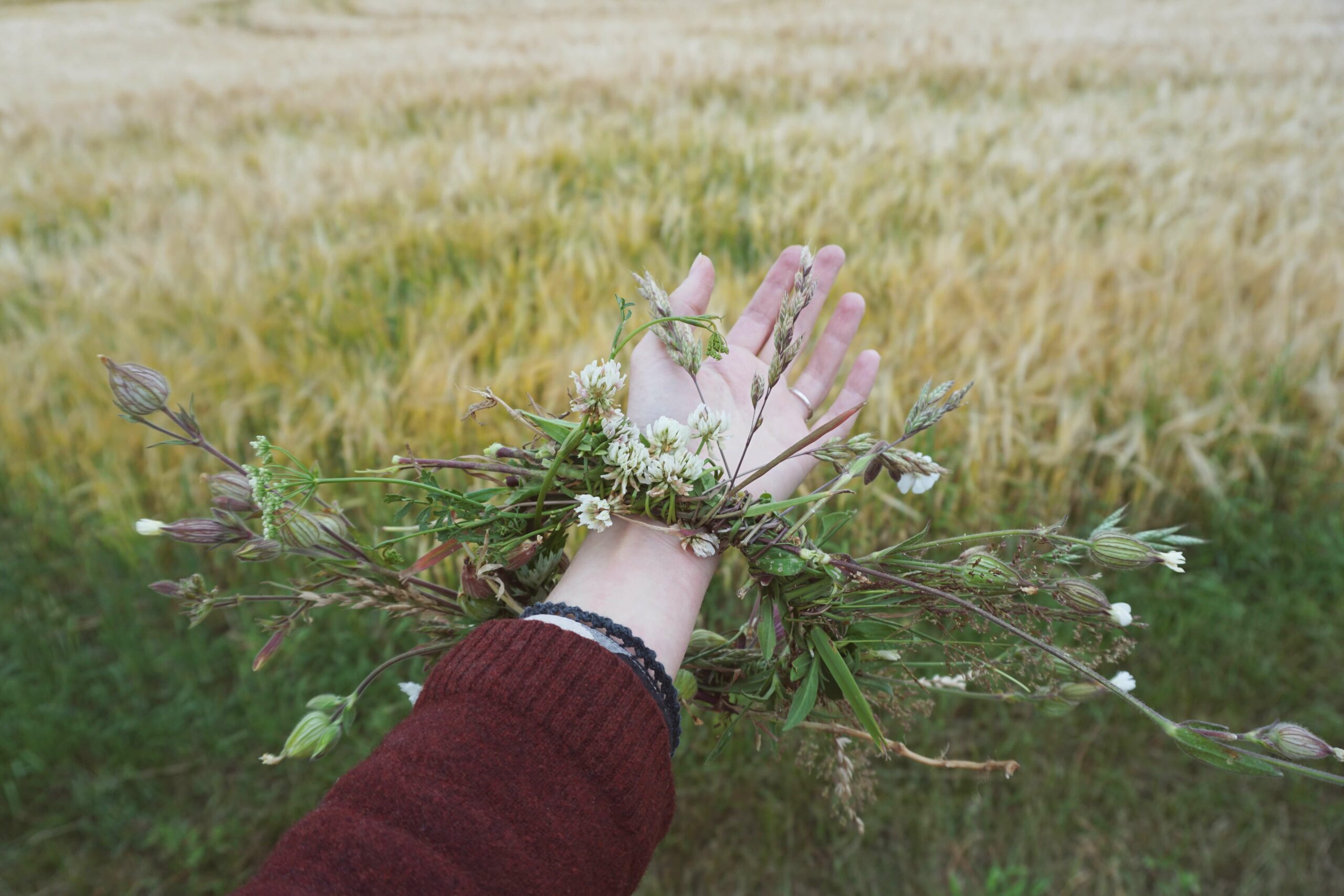Paganism is catching on worldwide as one of the most popular religions to ascribe or convert to. As such, you might find yourself attending a Pagan wedding.
Understanding these popular Pagan wedding traditions and rituals will help you make the most out of your experience and pay proper homage and respect to the participants.
Although there are plenty of different ways to practice Paganism, it has deep spiritual roots that unify pretty much every aspect or variation of the religion. It’s basically a reversion back to pre-Christian European traditions.
There’s a strong emphasis on equality between the sexes, respect for the environment, and generally a polytheistic view of spirituality.
8 Pagan Wedding Traditions and Rituals
Paganism can encompass aspects of Wicca or old Celtic traditions or even include more modern beliefs.
Since every wedding is different, it’s essential to familiarize yourself with common Pagan wedding traditions and rituals and see if there are any specific additional ones that you need to be apprised of before the wedding.
1. Handfasting Is an Important Part
Handfasting is the most essential part of a Pagan wedding and symbolizes the couple going from two separate people to one unified force—it’s visually attractive too. The couple has their hands wrapped with a ribbon at the altar.
Sometimes the handfasting comes at the end of the ceremony, but it can also happen before the couples read their vows. Guests might have to say affirmations or participate in the handfasting in some way, depending on the ceremony.
2. Leaping Over the Broom
It’s not uncommon to see new couples leaping over the broom to celebrate their nuptials. Like many Pagan wedding traditions and rituals, this one has profound roots. Brooms are a symbolic part of the old world and synonymous with getting rid of clutter and negativity before starting afresh.
By leaping over the broom, Pagan couples symbolize that they’re starting an exciting new life together and leaving any past problems behind.
3. Longer Ceremonies With Lots of Theater
Pagan ceremonies are nothing if not theatrical. Unlike many other religious services, Pagan ones tend to be very long and detailed, with many different performances, poems, stories, and singing. There might also be guest readings and other additional elements to the fanfare.
Occasionally you will hear religious messages at Pagan weddings. These are usually interspersed with non-religious or spiritual messages and are all part of the tapestry of different beliefs that make up Paganism. Since Paganism tends to be highly personal, these will differ from wedding to wedding.
Don’t be nervous if you’re asked to make a speech or contribute to another aspect of the wedding. There’s a reason why the couple chose you to be part of their big day. Just do your best and remember to respect the cultures and traditions of the wedding.
4. Calling the Elements
No matter what else you might see or experience in a Pagan wedding, you’re almost guaranteed to see some ceremonial part related to calling the elements. This is because the four elements—air, water, earth, and fire—are integral parts of Paganism and relate to earth-based worship.
Sometimes the officiant will call the four elements from different directions. Other times, they will simply talk about the elements.
Understanding why the four elements are so crucial in Paganism will help you to appreciate the wedding more. These four elements work in harmony with one another, and it’s imperative to call and respect them in the ceremony.
Air
If the officiant calls the elements from different directions, they will always call air from the east. This is because air can eliminate conflict and create a feeling of positivity and good thoughts.
Water
The feminine energetic element of water has a healing power that also renews and purifies. Therefore, it’s one of the most critical elements for goddess worship and essential for any big day like a wedding.
Fire
Powerful fire is the counterbalance to water and comes from the south. It’s both destructive and creative, associated with fertility and banishing the past.
Earth
Like water, the earth is a vital element associated with goddesses. It pays homage to Mother Earth and is essential for grounding and strength.
Your officiant might have other things to say about these elements, but the core principles of each should hold for every Pagan wedding.
For example, if the officiant is calling the elements from different directions, it’s polite to look in that direction. You should also avoid talking or taking pictures during the calling of the elements.
5. Plenty of Offerings
Pagan weddings tend to be very heavy on offerings, especially ones that represent the four elements. Expect a lot of incense, candles in different colors, or altars that celebrate nature and unity. These offerings will be unique to the couple, so don’t touch them unless explicitly invited to do so.
Different flowers might also make an appearance. Many Pagans believe that different flowers are associated with certain qualities, so you could see marigolds, lavender, or other blooms, alongside spices like myrrh.
If your Pagan wedding includes a lot of Wiccan influence, you could even find a pentacle or a wand somewhere in the area.
6. Cleansing a Sacred Space
Pagans believe that it’s essential to clear the energy out of a space before doing any kind of ritual. Elders or officiants do this through various means, including herbs like sage or incense. They can then invite good spirits, gods, or goddesses to come into the space.
Generally, the officiants will cleanse the space before the guests arrive, but if you’re very close to the Pagan wedding party, you might see this ritual in action. If you do, consider yourself to be very lucky. It means they trust you enough to allow you to see a very private and vital part of the ceremony.
7. Calling Various Spirits
Spirits and ancestors are vast parts of Paganism. So, in addition to the physically present guests, these other important guests will be called or invited too.
As with many aspects of Paganism, the types of gods or spirits called will vary from ceremony to ceremony. If you’re unfamiliar with these sorts of rituals, they might seem strange initially, but remember that they’re an important part of the big day.
Always be quiet during the spirit and ancestor calling unless directly invited to participate or confirm that the spirits are welcome. Aside from the handfasting, the calling of the spirits is easily one of the most important and sacred parts of the ritual as a whole. Please don’t take it lightly; otherwise, you risk offending your hosts.
8. Setting up a Sacred Circle
Many Pagan wedding traditions and rituals are linked to other ones, and the setting up of a sacred circle is one of them. This ritual goes hand-in-hand with cleansing a sacred space, although the two are slightly different.
The sacred circle is a particular area for either the couple, the ancestors, spirits, or other important deities. In Paganism and Wicca, circles are sacred and very important. Make sure that you take special note of where this circle is, and don’t venture into it if you’re not invited.
If you accidentally find yourself in a sacred circle, simply apologize and try not to do it again.
Frequently Asked Questions
Although Paganism is a rapidly growing religion, plenty of people aren’t familiar with it.
These frequently asked questions and their answers will help you understand how to be respectful to the new couple and enjoy every aspect of the wedding and adjacent ceremonies.
What is the core of the Pagan belief system?
For most Pagan people, nature is exceptionally important and central to their belief system. A lot of Paganism centers around rebirth and the cycle of life. As such, natural elements are hugely important in Paganism. Most weddings will incorporate some or all-natural elements like animals, plants, and stones.
Paganism is an earth-based religion, so many Pagan ceremonies are held outside, where the couple and their guests can soak in all of the natural bounties.
Who is the Pagan god?
Different Pagans believe in other gods and goddesses, but most of them ascribe to a divine feminine or female goddess. This idea ties in nicely to the concept of Mother Earth and also underscores the feminist leanings of Paganism.
How are Pagan vows different?
Pagan vows are generally more egalitarian than other religious vows and are the same for both people. Generally, Pagan vows include promises to be a partner for life and thank the gods/goddesses for providing the capacity to love and think.
As with any religion, there are standard vows and also less traditional vows. For example, some Pagan couples will opt to write their vows.
Pagan wedding traditions and rituals are some of the most beautiful on the planet. Since they’re highly steeped in natural respect and unity, you can expect unique and refreshing homages to the planet throughout. Understanding these traditions and rituals can help you enjoy yourself to the fullest at your next Pagan wedding.




